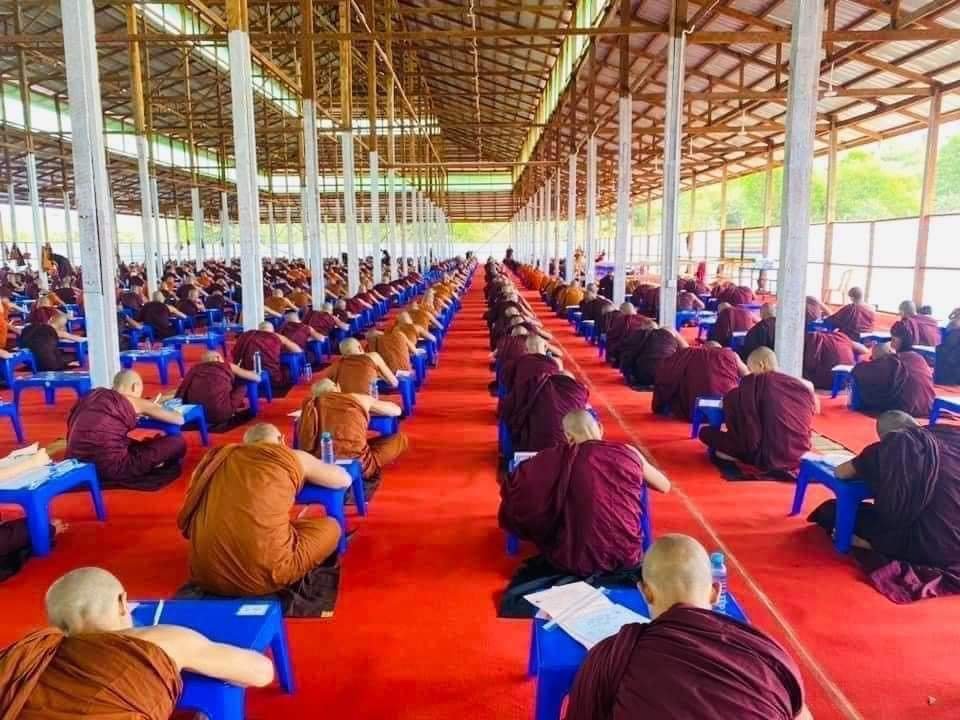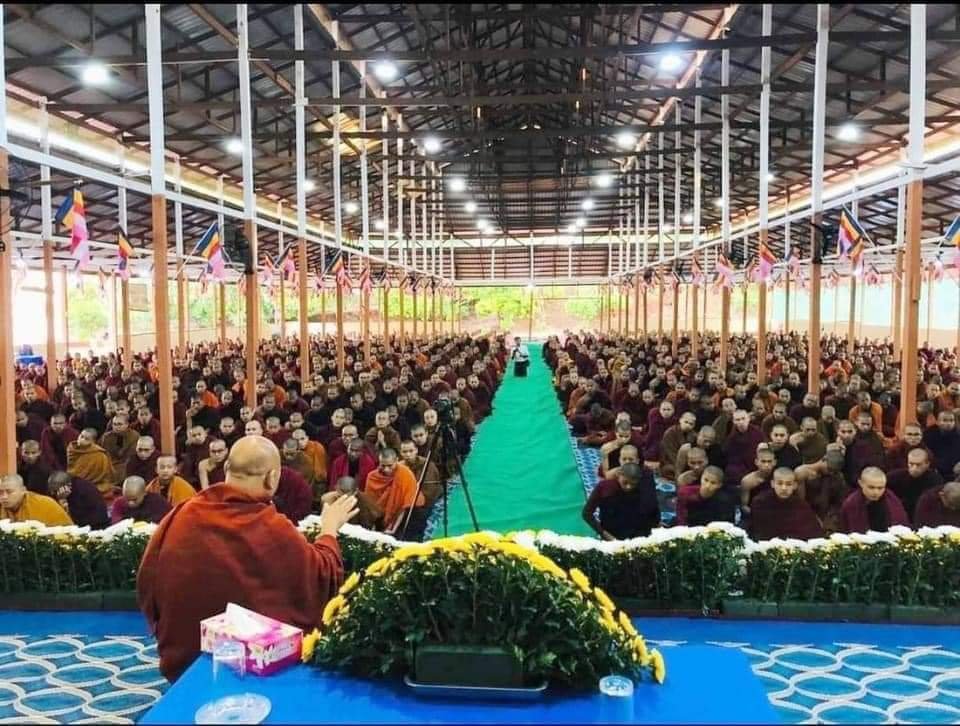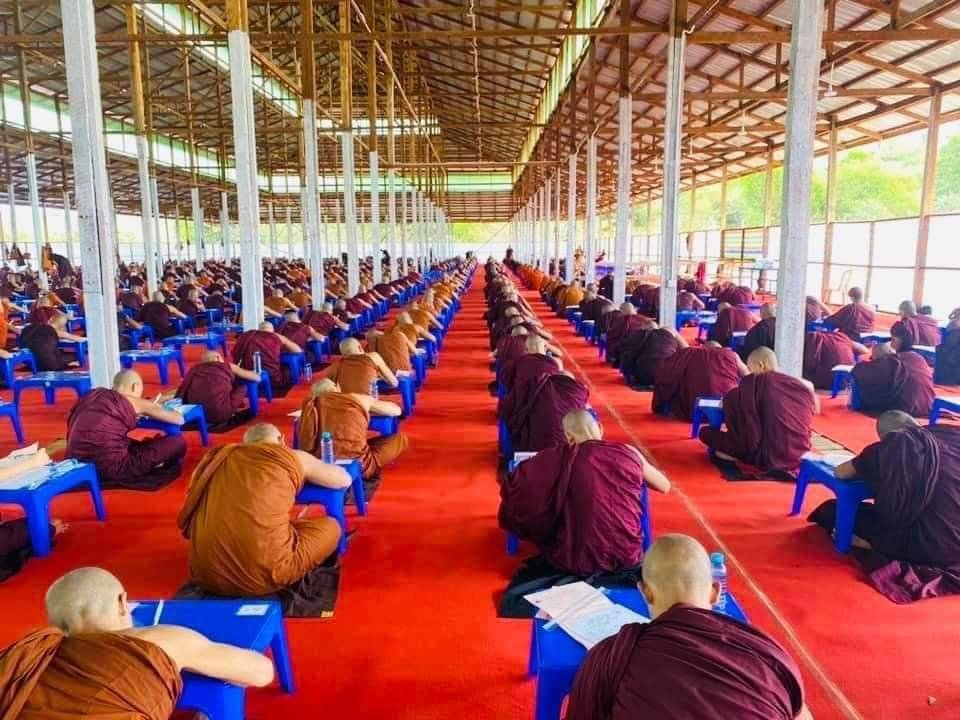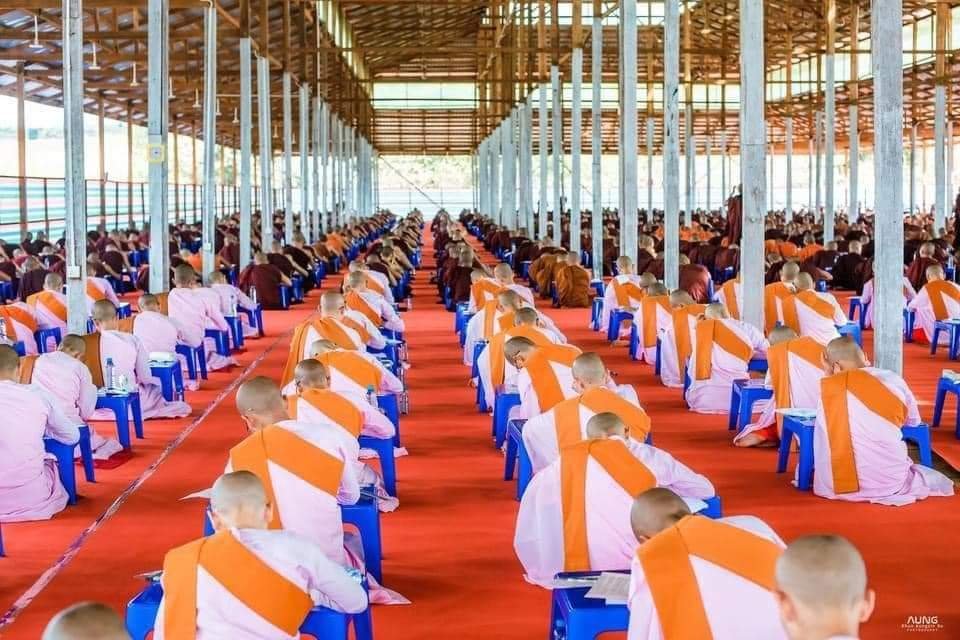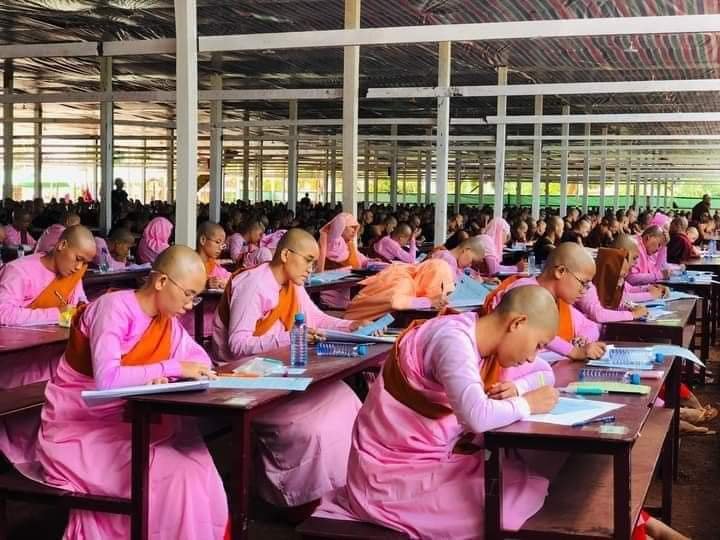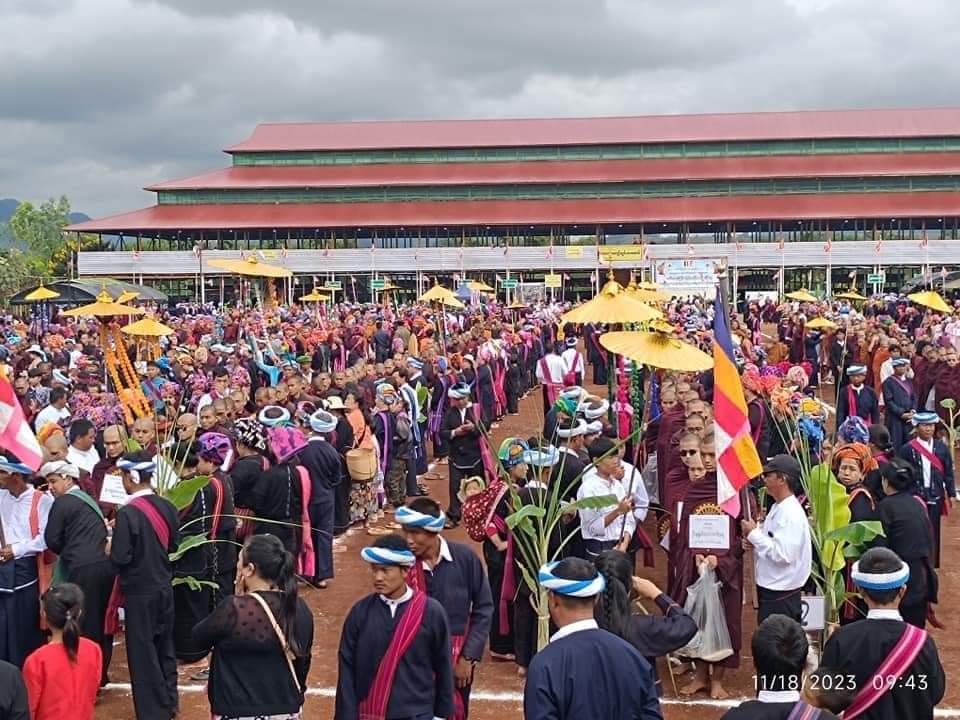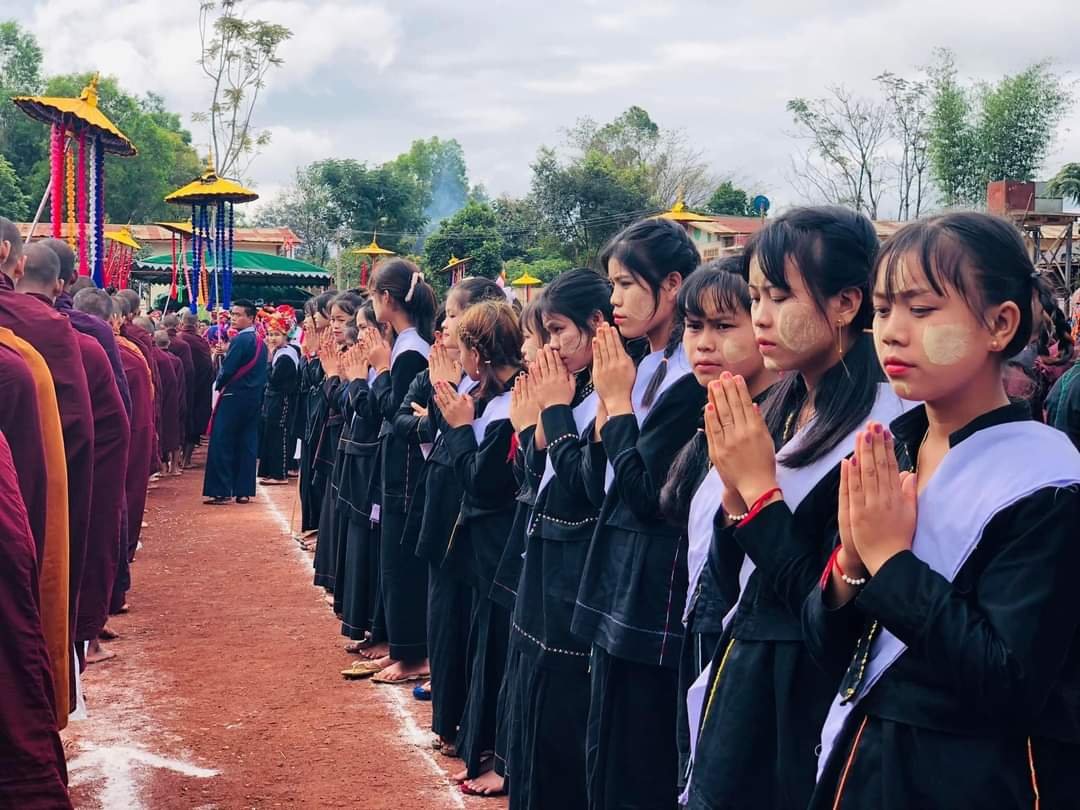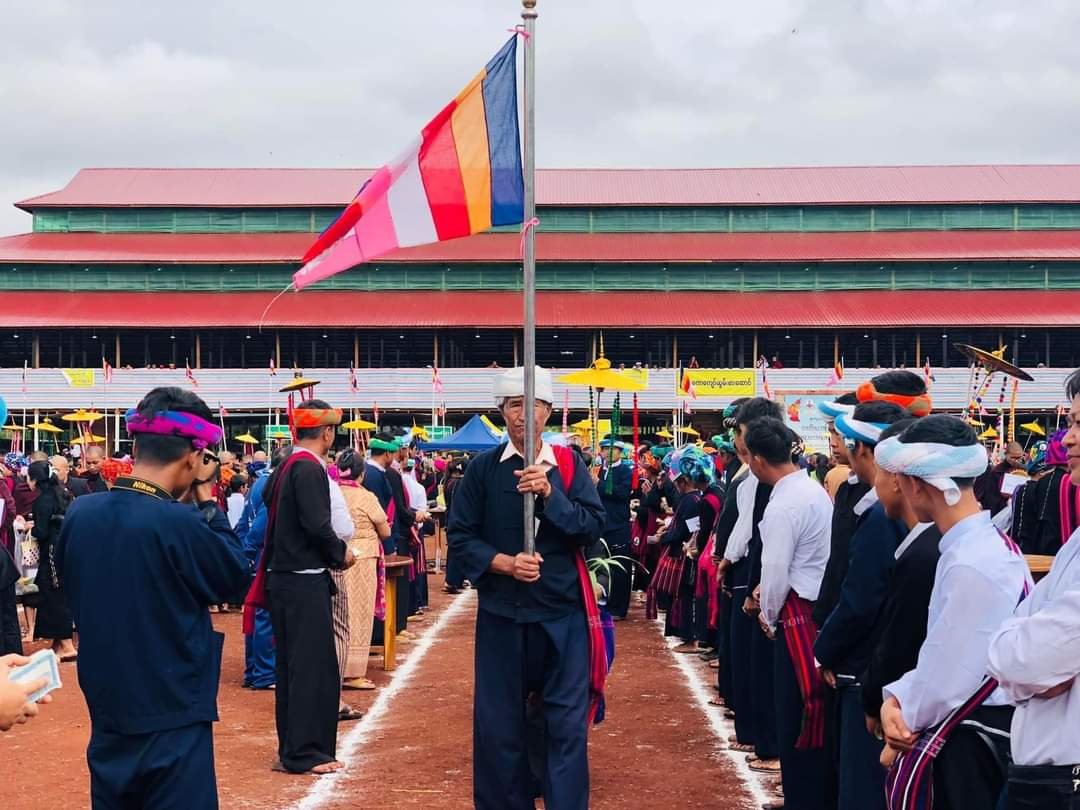Paving the Path to Enlightenment: Support for Myanmar's Novice Scholars
We share an essay submission from our local team leader who has been managing our monastic giving in Myanmar. He addresses this letter to those meditators around the world who have been touched by the Dhamma through visits to Burma, or through following a Burmese lineage, and welcomes them to consider a contribution of any amount to support monks and nuns during the upcoming donation events.
Dear International Meditators and Supporters,
I am reaching out to you today with an opportunity to support the young monks and nuns in Myanmar who are striving to continue their Buddhist education under incredibly challenging circumstances. These individuals embody the essence of monastic life—discipline, simplicity, and unwavering dedication. Supporting them not only helps them grow in their practice but also helps preserve the rich cultural heritage of Myanmar during these uncertain times.
Historically, well-known scholars such as Ledi Sayadaw and Mingun Sayadaw faced numerous hardships to pursue their studies and take their exams. Famously, Ledi Sayadaw walked from his village north of Monywa to Chaung-U, then trekked across the Nwe Chway Hills to Sagaing, eventually crossing the Ayeyarwady River without any money for the ferry. Similarly, Mingun Sayadaw, who became known as the Tipitakadhara Sayadaw, once recalled in a Dhamma talk that he also lacked money to pay for the ferry.
On a personal note, a decade and a half ago, my grandmother helped my cousin—a young novice—travel to Mandalay to continue his education after completing a basic course in our hometown. His parents couldn't support him financially, but with the 10,000 kyats my grandmother provided, he went on to study in Mandalay and other cities like Bago. Today, he is in his 50s, serving as a teacher at a respected monastery in Mandalay, training young novices!
These stories highlight the resilience and dedication required to pursue monastic education, and why supporting current novice scholars is so important— as well as why this comes to be a community affair for many.
The Tharmanay Kyaw (Samanera Scholar) Exams are an essential part of preserving Myanmar's cultural heritage and promoting Buddhist teachings. These exams capture the essence of Myanmar's monastic life, rooted in discipline and purpose. They also play a crucial role in ensuring that young monks and nuns are well-versed in the teachings of the Buddha, disciplined in their practices, and ready to take on leadership roles in their communities. By passing these exams, novices prove their dedication to a rigorous course of study, which not only deepens their understanding of the Dhamma but also prepares them for further scholarly pursuits.
However, the military coup in Myanmar has posed significant challenges for monks. The political instability, violence, and disruptions have made it difficult for monastics, who have renounced the world, to continue their studies in peace. Sitting for an exam under these conditions is an enormous challenge! The atmosphere of fear and uncertainty, combined with restricted movement and limited access to resources, means that even the most dedicated monks face constant obstacles in pursuing their education. Despite having renounced worldly affairs, they are still affected by the turmoil, making their participation in these exams an act of perseverance and courage.
One of the prominent examination boards, the Nāgapura Sāsanālankāra Exam Board in Hopone, Southern Shan State, is organizing the fourth national Thamanegyaw exams, which include three main levels and two preliminary levels, starting from November 13th. Hopone, surrounded by the rolling hills of Shan State, is a peaceful place where young monks gather to put their knowledge to the test. I can still recall how the early morning mist lifts over the fields, and the monks' robes stand out against the green rice paddies and bamboo groves.
The Tharmanay Kyaw (Samanera Scholar) Exams were established in 1949, one year after Myanmar gained independence. The respected Mahā Gandhārum Sayadaw, the abbot of Mahā Gandhārum Monastery in Amarapura, created the guidelines for these exams, which have since been organized by Mandalay's Sakyasīha (Thakkya Thiha) Association. Candidates take three exams, covering a different subject each day, across three levels of study.
For the first level, candidates study:
- Vinaya Mahāvagga Pali
- Aṅguttara Nikāya (from Ekakanipāto—the Book of Ones, to Tikanipāto—the Book of Threes)
- Dhammapada Atthakathā (from Yamakavaggo to Appamādavaggo)
- Sādha (Pali Grammar—Five Sections)
- Abhidhammattha-saṃgaha (three lower chapters: citta, cetasika, and miscellaneous)
The second level includes:
- The Cullavagga, elaborating on monks' etiquette and duties
- Anguttara Nikāya (from the Book of Fours to the Book of Sixes)
- Dhammapada Atthakathā (from Cittavaggo to Daṇḍavaggo)
- Pali Grammar (seven sections)
- Abhidhammattha-saṃgaha (six chapters)
The third (final) level includes:
- Pārājika (serious monastic faults) and Pācittiya (rules that can be atoned for)
- Anguttara Nikāya (from the Book of Sevens to the Book of Elevens)
- Dhammapada Atthakatha (Jarāvaggo to Brāhmaṇavaggo)
- Pali Grammar (eight sections)
- Abhidhammattha-saṃgaha (nine chapters)
In summary, a successful candidate who passes these exams completes an impressive body of work: 2,260 pages of the Vinaya Pitaka, 1,651 pages of the Anguttara Nikāya, 901 pages of the Dhammapada Atthakathā, eight sections of Pali Grammar, and nine divisions of the Saṃgaha. Completing this extensive course provides an excellent foundation for further studies, including the Dhammācariya Exam (the “Teacher of the Dharma”). Those who pass the Tharmanegyaw (Novice Scholar) exams receive the monastic title “-lankāra,” added to their name (e.g., Ven. Ācāra becomes Ven. Ācārālankāra). The annual pass rate is typically under 13%, highlighting the difficulty of these exams!
Today, both novices and nuns have the opportunity to take the Thamanegyaw exams. Held annually between October and January, these exams are state-recognized and administered by monasteries with many novice candidates. Established examination bodies conduct these exams for participants from across the country.
To support the fourth national Thamanegyaw exams, we invite international meditators and supporters of Buddhist teachings to consider contributing, and let us know your intention to donate for this cause. These contributions are vital to ensure that the monastic candidates—who are enduring hardships due to political instability—are able to pursue their studies and complete these rigorous exams. Novices rise before dawn, light oil lamps, and begin their meditation. Despite restrictions and limited resources, they continue their morning routines—chanting Pali scriptures and preparing for their day. Their dedication under such circumstances is admirable. These contributions are not just about money; they are about keeping alive the flame of the Buddha's teachings in Myanmar.
From my reflections and research, even small contributions can significantly impact the lives of these monastics. Below are some of the key ways you can help make a difference:
1. Sponsoring a Full Day's Meals (Breakfast + Lunch for 2,922 Candidates): 3.5 million kyats ($815-820). This will provide nourishing meals for the candidates, sustaining them both physically and spiritually.
2. Sponsoring Breakfast and Lunch Snacks for the Candidates: 500,000 kyats ($116-120). This helps provide lighter meals that keep the candidates focused throughout the exam day.
3. Sponsoring a Table for a Single Meal: 10,000 kyats ($2-3). Even a small contribution can help provide food for the candidates.
4. Sponsoring a Table for Snacks: 5,000 kyats ($1-1.5). This minimal contribution ensures that candidates have something to sustain them during the exams.
5. Contributing to Sustainable Exam Funds: 100,000 kyats ($23-25). This ensures the sustainability of the exam process, crucial for the future of monastic education.
6. Offering for Candidates Who Pass the Preliminary Basic Exam: 40,000 kyats ($9-10). This reward motivates candidates who complete their first milestone.
7. Offering for Candidates Who Pass the Preparation Exam: 50,000 kyats ($12-13).
8. Offering for a Level-1 Candidate: 100,000 kyats ($23-25).
9. Offering for a Level-2 Candidate: 150,000 kyats ($35-37).
10. Offering for a Level-3 Graduate: 200,000 kyats ($47-50). This recognizes candidates who complete the highest level of study.
11. Other Support (such as rice, cooking oil, salt, vegetables) is also welcomed. These contributions are essential for maintaining the basic needs of the monastics.
The costs outlined above reflect my research and current exchange rates. Any support you provide—small or large—will make a significant difference in the lives of these monks and nuns, who strive to preserve and pass on the Dhamma during these trying times.
Additionally, several prominent monasteries that regularly send candidates to these exams have already received donations for their travel to Southern Shan State, as seen in their social media updates. However, many novice candidates from smaller and lesser-known monasteries, particularly those in rural areas like the Sagaing Region—where villages are often clusters of bamboo huts surrounded by golden fields—still face significant challenges due to limited resources. Young monks walk barefoot to collect alms, passing through narrow village paths filled with morning life—roosters crowing, children laughing. These novices persevere despite the lack of resources and support. They deserve our support to continue on their spiritual journey.
Therefore, we propose extending support not only to those who successfully pass the exams but also to those still working toward that goal. This will help ensure they remain motivated in their studies. Our proposal includes three possible options for support:
1. One-time donation to the exam body for meals for all monastic candidates—this could include a certain number of sacks of rice, vegetables, or sponsorship for one meal.
2. Sponsorship for each candidate who passes the exams (monks, novices, or nuns). Each international donor could support a candidate, creating a lasting connection.
3. Contributions toward travel expenses for monasteries with large numbers of candidates or those in need of support, particularly from underfunded or remote regions.
Reflecting on the continuation of these exams in our community, it is truly heartening to see the enduring commitment of these young monks and nuns. Despite the challenges posed by the current political situation, their determination to uphold the Dhamma and follow the path of learning is a testament to the strength of our cultural and spiritual values. The beauty of these exams lies not only in the knowledge they impart but in the shared spirit of resilience and hope that they foster within our community, keeping alive a tradition that has persevered for generations.
